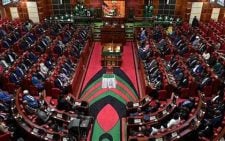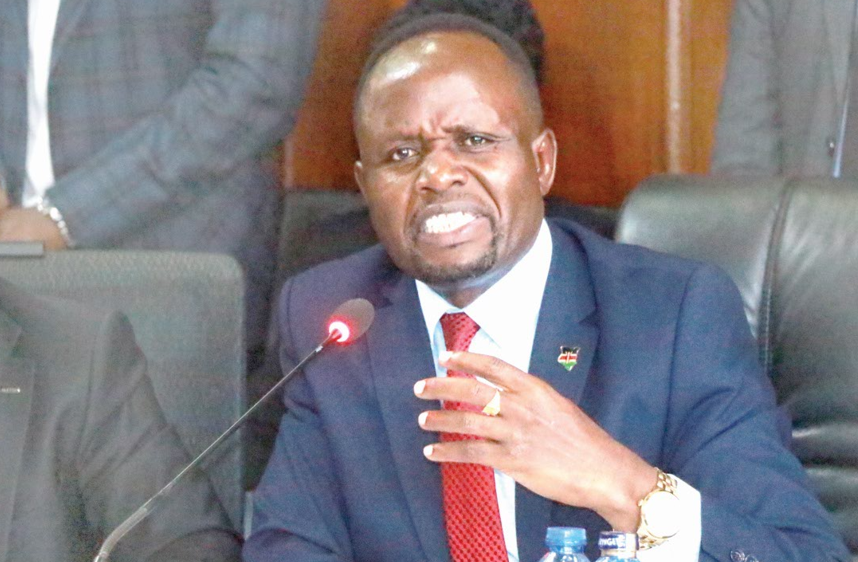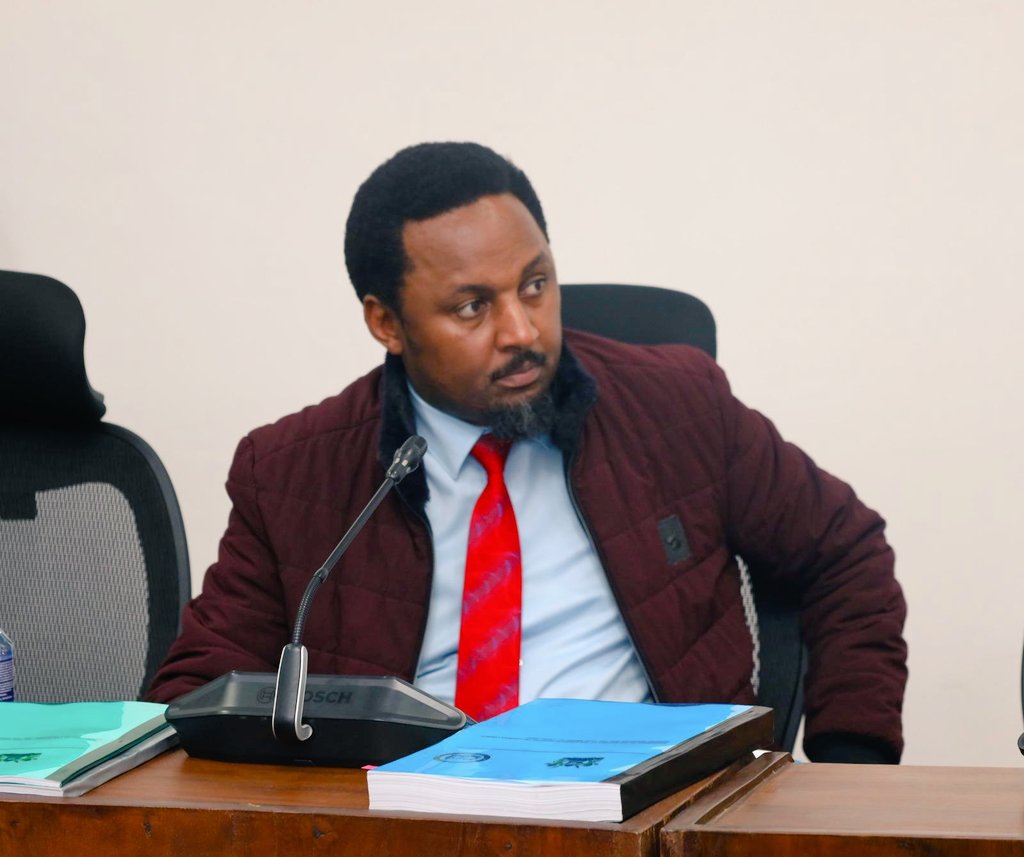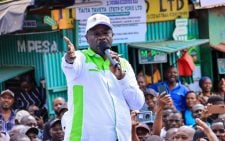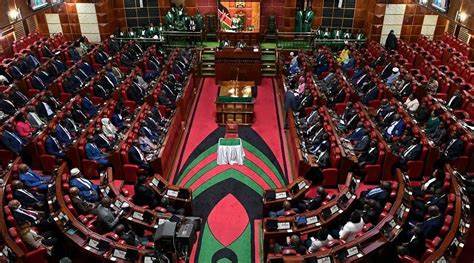Kindiki cash distribution in Mt Kenya under focus
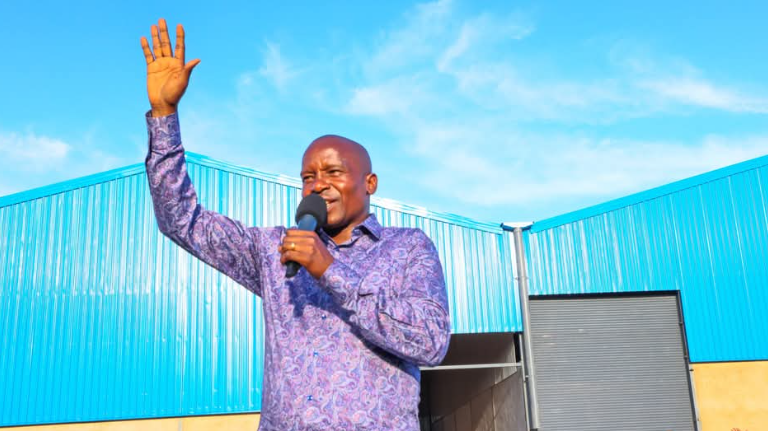
Deputy President Kithure Kindiki has put the Kenya Kwanza government under sharp scrutiny after spearheading a cash distribution initiative disguised as an economic empowerment programme, especially in the Mt Kenya region.
Coming at a time when the country’s economy is grappling with a near-cash crunch due to ballooning public debt that has left critical sectors seriously underfunded, suspicion is deepening over the source of money that Kindiki and other Kenya Kwanza politicians are splashing in the region to support small-scale businesses.
Specifically, Kenyans are increasingly getting frustrated with the government’s failure to deliver on critical promises; questions are mounting over the prudence, sustainability, and transparency of Kindiki’s pet projects, largely being funded from taxpayers’ pockets.
While key national initiatives falter due to a glaring lack of funds from the National Treasury, his office continues to push forward with regional economic schemes that critics say are politically convenient but fiscally reckless, raising red flags about misplaced priorities in a time of deep financial strain.
Successor’s move
As Kindiki and a section of Central region legislators intensified the economic empowerment meetings targeting boda boda riders and Mama Mbogas, former Deputy President Rigathi Gachagua criticised his successor’s move, noting that it comes at a time when there is no money for capitation in public schools.
“The principals are being treated to a game of musical chairs by the government. Listening to them, the situation is dire; they are torn between letting auctioneers into schools over unpaid bills or sending students and pupils home for levies,” Gachagua said.
The Democracy for Citizens Party (DCP) leader also accused the ruling coalition of running down the health sector as hospitals have no drugs, frequent strikes by health workers and the yet to stabilise Social Health Insurance Fund (SHIF).
“The little money available from payment of taxes has been diverted through the security agencies to bribe women and Boda boda operators, and finance the 2027 campaign and pay goons to disrupt meetings of those advocating for regime change,” he said
“We must remind those hawking money in bags what the famous Sh500 notes did to our economy and our nation in 1992. Kenyans are still paying the price over 3 decades later.”
Inner circle
Experts now argue that the legislators in the inner circle of Kenya Kwanza have embarked on a campaign mode two years before the seemingly high-stakes 2027 general elections. While President Ruto will continue to launch national projects funded by the government, Kindiki is expected to undertake such projects as the economic empowerment programme that appears to directly target the voters.
According to Professor Frank Matanga of Masinde Muliro University of Science and Technology, the Kenya Kwanza administration is hard-pressed to strike a balance between committing the country to developmental funds and financing the 2027 politics.
“It is a catch-22 situation for the Kenya Kwanza alliance because the elections are just around the corner. After the impeachment of the former deputy president, the ruling coalition is not assured of the central region’s votes. So, the economic empowerment is just a mopping-up and reassuring move to the electorate, which will sooner or later be extended to other regions outside Mt Kenya,” Matanga said.
Political Analyst Herman Manyora dismissed any Kindiki’s economic empowerment as a popularity campaign, which is inconsiderate of the interests of Kenyans.
“Governments are about politics, so quite often it is not about the viability of the projects. The projects don’t have to make economic sense. Sometimes it is more of a political sense than an economic sense,” Manyora said.
He said that the ruling coalition’s top leadership is focused on pleasing the voters for popularity, a principle Manyora noted is universal in young democracies like Kenya.
“What we are witnessing at the national level are unimaginable politics of scale, so that it is finally seen to be a lying government. Instead of doing what is there, they are promising beyond the imaginable capacity of the government to deliver,” he added.
“The president is on a promising spree, that every village is promised one thing or the other, to the point where it has become laughable. Kenyans have concluded that the government is just playing games and lying.”
Manyora warned that Kindiki’s scheme of empowering small-scale traders with money whose source cannot be directly linked to the national economy is a risk and can lead to an inflation surge
“…where has the deputy president gotten money? Is it as a result of some economic activity? If the answer is no, that is already harmful to the economy, because when you pour money into projects or give to people, and the projects are not well-thought-out, there is no business.


